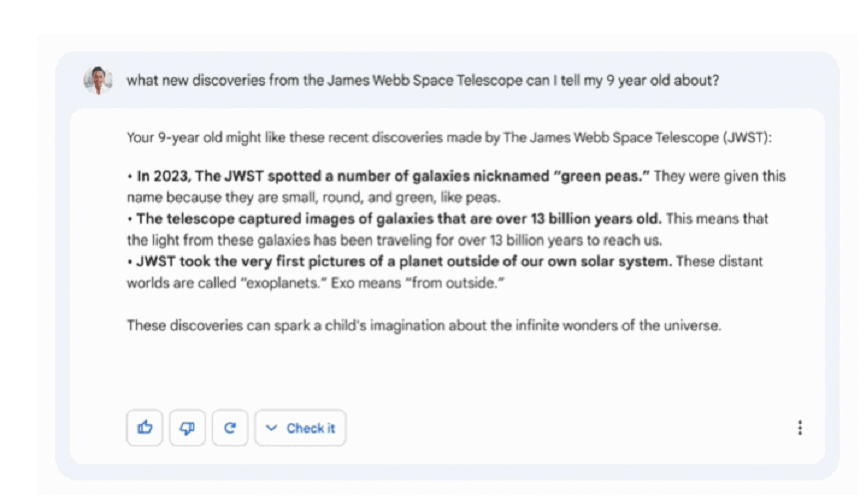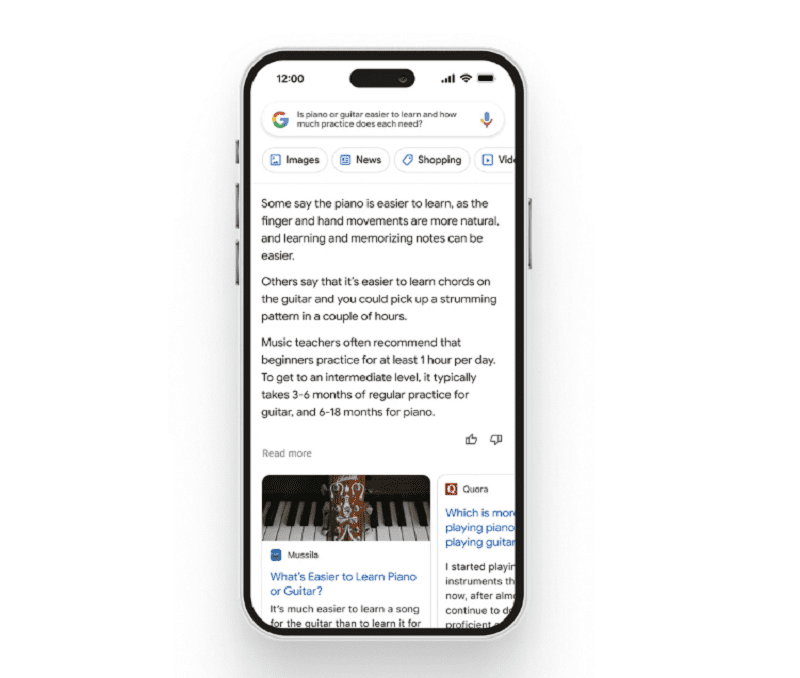Google has introduced its conversational AI service Bard. This lightweight version of its own LaMDA AI model is to compete with the recently introduced ChatGPT. Google Search will also soon get integrated AI functionality.
With the introduction of its own conversational AI service or chatbot, Google is opening the attack on OpenAI’s very popular ChatGPT. The tech giant’s response to this popular AI tool has been in the air for some time.
The AI conversation service now announced is based on Google’s own AI models and in particular the LaMDA model. Bard searches for the answer to posed questions, for this it consults the Internet and uses LaMDA AI. By using advanced language models and through natural language processing it then provides an answer.
In this way, the service generates new answers with the highest quality, according to Google CEO Sundar Pichai in his announcement post. It is possible, for example, to explain the operation and discoveries of the James Webb Telescope to a nine-year-old child.
Private preview
For now, the AI conversation service has only been offered to so-called “trusted” test subjects. A so-called private preview. Exactly who these test subjects are, usually large organizations, is not known. In addition, Google explained that only the lightweight version of LaMDA is being used for the tool. This ensures that search actions use less processing power, making scaling up to support more users easier. This will soon allow Google to collect more feedback to improve the AI conversation service.
Moreover, Google is going to combine external feedback with its own internal test results. With this, Google wants to ensure that Bard’s answers have a high degree of reliability, safety and also match reality (the truth). Among other things, this should prevent bias and racist comments from appearing in the results. Bard should become available to a wider audience in a few weeks.
Integration into Google Search
In addition to the introduction of Bard, Pinchai also announced that Google will integrate its various AI models, such as LaMDA, as well as PaLM, Imagen and MusicLM, into various other proprietary solutions. With this, the tech giant intends to offer new ways to get started with information, images, video and audio.
The first application to get this AI integration is Google Search. Soon we will see Google Search getting undisclosed AI functionality that distills complex information and different perspectives into easy-to-understand or process formats. This will allow users to understand the big picture faster and learn more from the Internet. It looks like Bard will be integrated in Google Search.
Availability of Generative Language API
Last but not least, Google announced that it wants to work with developers, creators and companies to create more AI solutions and applications. These tools should eventually make it easier to build applications with AI.
Within this collaboration, the aforementioned groups will soon have access to the Generative Language API, initially supported by LaMDA. Support for other AI models will follow at a later stage.
Furthermore, startups are also encouraged to start developing AI applications. Google Cloud provides the necessary computing power for this purpose and is also collaborating through partnerships with Cohere, C3.ai and Anthropic, among others.
Tip: Google may present ChatGPT competitor as early as this week


